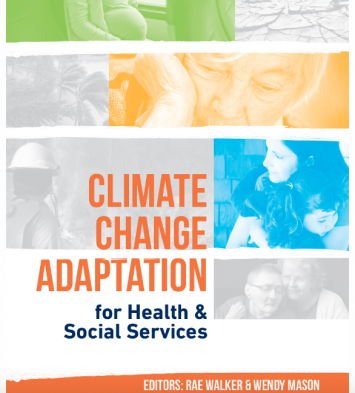Abstract
What we need to do in local communities to support and protect the people most vulnerable to the impacts of climate change in Australia.
Climate Change Adaptation for Health and Social Services addresses concerns from the health and community services sector, including local government, about how to respond to climate change and its impacts on communities.
What should an intervention framework for the community-based health and social services sector contain and how can it complement an organisation's core values, role and work programs? What current direct and indirect impacts of climate change are most relevant to organisations and the communities they serve? Which population groups are most vulnerable to climate change and what are the impacts on them? Above all, what can be done to reduce the current risks from climate change to clients, communities and organisations?
Written by expert researchers and practitioners, this book presents existing research, innovative practice and useful tools to support organisations taking practical steps towards adaptation to the impacts of climate change on people. It examines the evidence of climate change impacts on six of the most vulnerable population groups – people with disability; older people; women and children; Aboriginal people; rural people; and people from culturally and linguistically diverse backgrounds – as well as discussing effective interventions. Other key issues covered include health and social impacts of climate change, adaptation, mitigation, climate change communication, organisational adaptation and a case study of innovation illustrating some of the book’s themes.
Accessible, informative and incorporating extensive evidence and experience, Climate Change Adaptation for Health and Social Services is relevant for anyone within the health and community services sector concerned about climate change and its impacts on their community.
Note: Journal articles and conference papers (and links where available) are available under open access arrangements where possible. Otherwise please contact your institution’s library, the authors, or publishers to organise full access.
